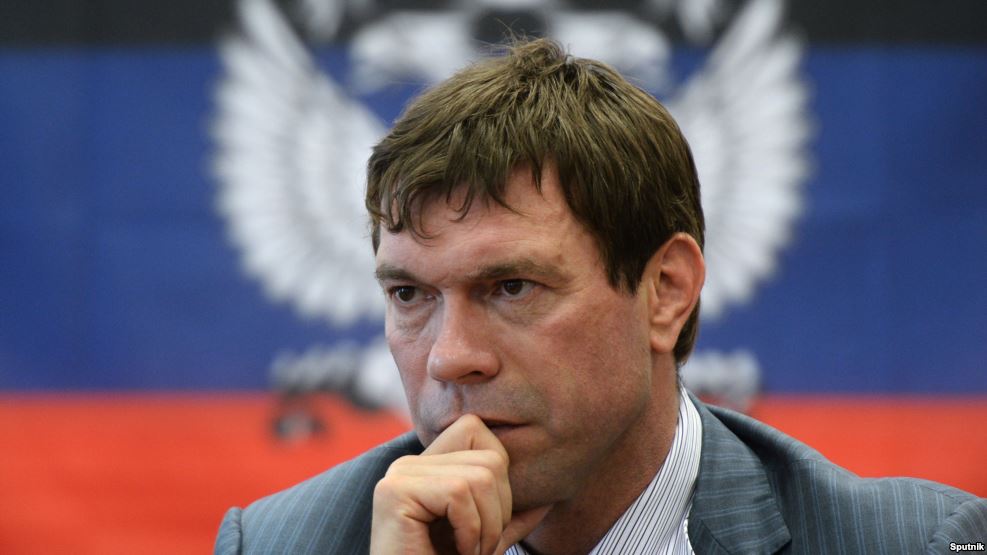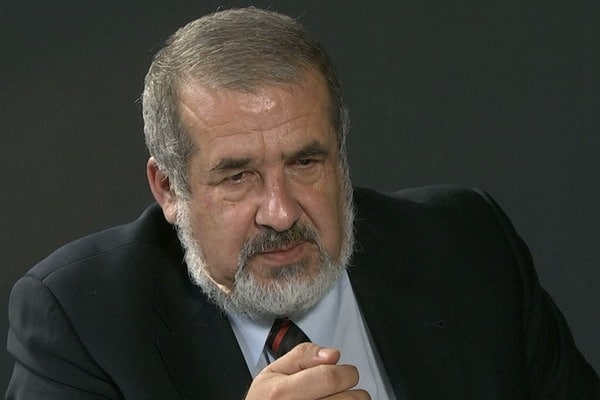The Law of Ukraine on the legal regime in the occupied territories stipulates that all transactions on the peninsula concluded in respect of property or land are in violation of Ukrainian legislation and will be deemed null and void. That should be enough to block any projects, including investments. Few persons or companies have taken the risk to invest in Crimea, but there are exceptions. A company owned by the family of Oleh Tsarev (wanted in Ukraine) has concluded a leasing contract for a children’s pulmonology sanatorium Ai-Todor, located in Gaspra (Bolshaya Yalta).
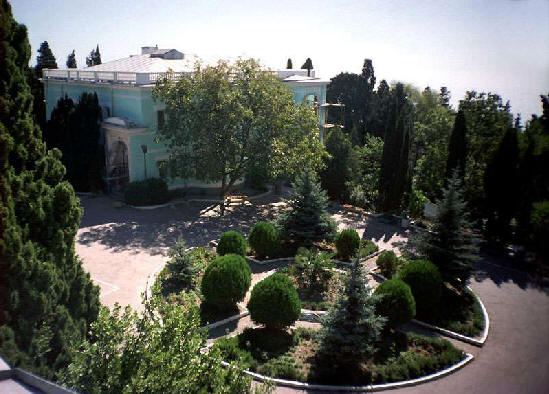
Raduga LLC, which belongs to Oleh Tsarev and to a company owned by his mother and wife, will invest 305 million rubles in the site, including 299.1 million of capital investments. The investor has also promised to create 70 jobs.
The Tsarev family will be leasing all the buildings situated on the territory of the sanatorium, located on a total area of 7.5 hectares. However, these buildings require special attention. For example, dormitory building No.1 and No.3, which house the sleeping area and a medical-diagnostic station, are classified architectural monuments built in 1912. In addition, the resort has its own park and private beach.
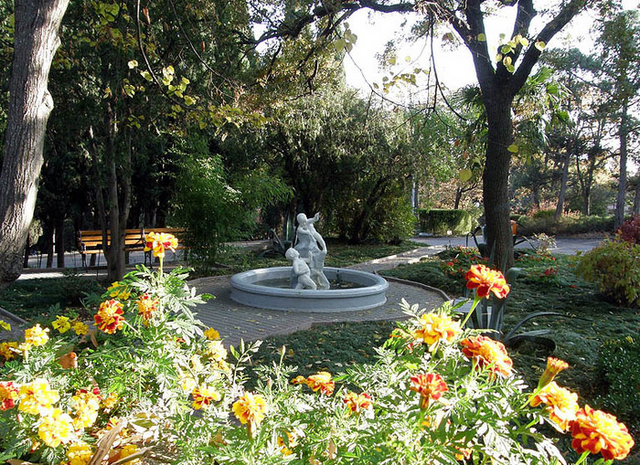
The investment project was approved one year ago by the Council for Investment Improvement under the leadership of “Deputy Prime Minister” Yevgeniy Bavykin. Reconstruction, renovation, and development projects for other sites were approved in one day, namely two Alushta resorts – Dnipro and KHIITovets. The Tsarev family is involved in these projects through Selbillyar LLC belonging to his wife and mother and Veteran LLC owned by Tsarev himself.
If we examine the information on investment projects to be implemented in Crimea, it shows that the former Ukrainian politician is one of the biggest investors in the tourism and resort industry in Crimea.
The Tsarev companies mentioned above have promised to reconstruct six Crimean sanatoriums. In addition to Ai-Todor, Dnipro, and KHIITovtets, they are engaged in renovating the Evpatoria sanatoriums Yubileyny and Raduga, and Veteran in Alushta. Each project will require hundreds of millions of rubles.
It is clear that the Tsarev family wants to gain a foothold in Crimea for a longer period of time. The most immediate date for project implementation is marked for 2040. Oleh Tsarev plans to reconstruct the Dnepr and KHIITovets sanatoriums by 2064, and the Veteran Resort in Alushta by 2065.
Oleh Tsarev has been accused by Ukrainian authorities of suspicion of organizing actions to modify the state border of Ukraine, inciting social discord and calling for the overthrow of constitutional order. The penalty is 15 years.
Despite the current illegal status of Crimea, health centres and resorts are being actively developed, but such landgrabbing schemes are not at all new. It is worth remembering the summer of 2014 when Ukrainian resorts in Crimea were distributed to Russian companies and state structures. The first hotel and recreational assets were handed over to the Russian Interior Ministry, including the following sanatoriums/resorts: Izumrudny, Burevestnyk in Yevpatoria, Sokol in Sudak, Alupka and Druzhba branch in Alushta (all facilities had previously been managed by the Ukrainian Ministry of Internal Affairs). The sanatorium and resorts belonging to Ukrainian Railways were transferred to the Russian Railways.
TheAyvazovsk Guest House in Partenit (Bolshaya Alushta), owned by Ukrainian businessman and Deputy Serhiy Taruta, is now controlled by the Office of Presidential Affairs of Russia. The Crimea Military Sanatorium is now managed by the Russian Ministry of Defense. Both resorts are surrounded by high walls that prevent local residents and visitors from accessing the beach and seaside.
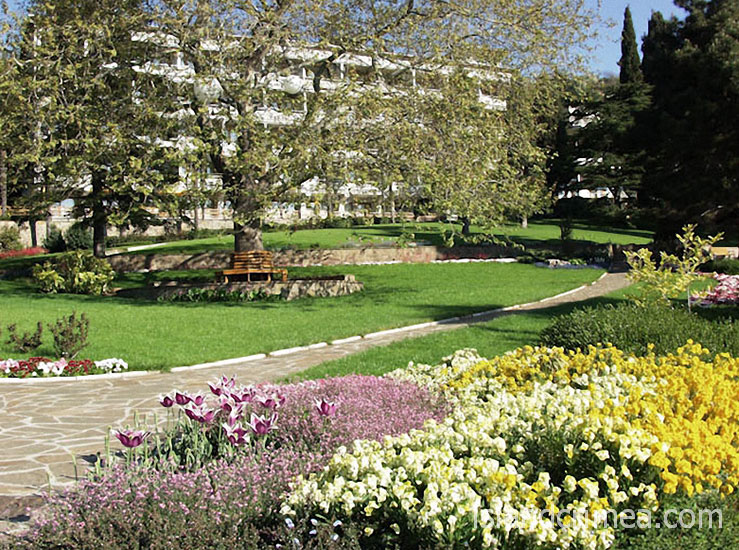
In the past decades, investments in Crimean health resorts have usually led to alienation. There are many examples here…. but the biggest story is related to the Bobrov Tuberculosis Sanatorium in Alupka in 2013. As different buildings were leased to commercial structures, the whole sanatorium was eventually cut off from the seaside. Crimean journalist Serhiy Mokrushin explains:
“Sure, it’s not a bad idea to offer resorts for lease to different investors, but it should be done through transparent tenders with clear procedures and projects. However, I don’t know of many similar cases that have led to something good. The investor puts his money into the site, but first he claims total rights to this asset, which eventually leads to alienation. It’s obvious that in Tsarev’s case it will be just another corrupt landgrabbing scheme.”
Former Minister of Resorts and Tourism of Crimea, Oleksandr Liyev:
“There’s no doubt that in future these resorts and sanatoriums will be returned to their rightful Ukrainian owners. Investors know this, so there have been no serious procurement transactions although there are many offers on the market. What we’re seeing are corrupt schemes to exploit these sanatoriums, but no real money is actually invested in their reconstruction.”
So, what can Ukrainian authorities do in order not to lose Crimean resorts? According to Alexander Liev, this question depends on how interested the Ukrainian officials are to influence processes in the occupied territory:
“Unfortunately, Ukraine is losing its chances, arguments and instruments. This happened with the energy, food and transport blockade, when it was organized without any clear objective, strategy or understanding. The government must also make major changes in relation to Crimea because otherwise, it will simply cease to exist.”
According to community members, the Ukrainian government could make a major impact on the situation in Crimea if they announced a clear national strategy on returning the peninsula to Ukraine. Authorities have been promising such a document for two years, but it has never been submitted to parliament.


